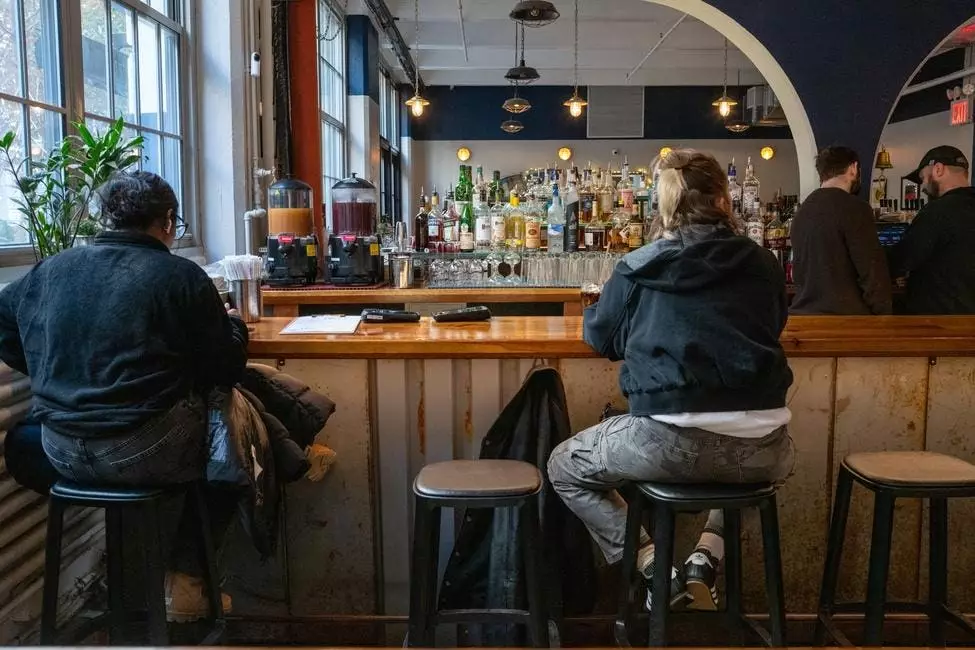For generations, alcohol has played a pivotal role in American culture. It has been a staple at weddings, a companion during social gatherings, and a requisite in nearly every celebratory toast. This deep-rooted tradition, however, is now at a crossroads. U.S. Surgeon General Dr. Vivek Murthy recently urged the public to reassess alcohol’s place in our lives, citing its alarming links to cancer. This instigates a critical reflection on our long-held values regarding drinking, signaling potential transformations in social norms and behaviors surrounding alcohol consumption.
Dr. Murthy’s advisory highlights a stark reality: alcohol is a preventable cause of approximately 100,000 cancer cases and 20,000 deaths annually in the U.S. Despite these sobering statistics, fewer than half of Americans acknowledge alcohol as a cancer risk. This disconnect highlights a significant gap in public health knowledge and suggests an urgent need for more effective communication about alcohol’s dangers.
The Rise of Health Awareness and Reduced Alcohol Consumption
The pandemic profoundly altered our relationships with alcohol. As the nation faced lockdowns and isolation, many turned to drinking as a source of comfort, leading to a noticeable uptick in heavy drinking. However, emerging trends indicate a seismic shift in how subsequent generations approach drinking. Gen Z and Millennials, in particular, are gravitating towards lighter or non-alcoholic options, spurred by values prioritizing health, wellness, and financial prudence.
A survey revealed that in 2024, 61% of Gen Z plans to drink less than the previous year—a significant increase from 40%. Meanwhile, Millennials reported reducing their alcohol intake by an impressive 40%. The motivations behind these changes are compelling: better physical health, improved mental clarity, financial savings, and a desire for a healthier lifestyle. This pivot towards moderation signifies not just a choice but a cultural metamorphosis.
At the forefront of this cultural renaissance is the “sober curious” movement, which encourages individuals to explore their drinking habits without societal pressure. This concept invites people to consider their relationship with alcohol and offers a chance to redefine social experiences traditionally tied to drinking. In 2024, a staggering 41% of Americans expressed intentions to cut back on alcohol, with 26% identifying as “mindful drinkers.”
This evolution reflects a broader societal trend that favors wellness over indulgence. Innovative non-alcoholic options have gained prominence, offering complex flavors and enjoyable experiences that appeal to mature consumers. Mocktails, alcohol-free wines, and zero-proof spirits have transformed bar and restaurant menus, creating inclusive spaces for those choosing not to drink. The message is clear: one can socialize without alcohol, redefining the norms of connection.
Economic pressures are also playing a crucial role in shaping drinking habits. With rising living costs and inflation, thrifty consumers are reevaluating their spending on alcoholic beverages. This reality is reminiscent of drinking trends observed during the Great Recession, when consumers gravitated towards affordable options. Today, many are opting for fun, low-cost gatherings instead of lavish nights out filled with expensive cocktails.
Furthermore, alternatives such as THC beverages offer yet another creative way to socialize. As cannabis becomes more mainstream across various states, these products present a new landscape for beverage choices, further diversifying social rituals.
The Path Ahead: Health, Choice, and Connection
The implications of Dr. Murthy’s advisory may transcend surface-level reactions, hinting at a more profound societal shift in attitudes towards alcohol—paving the way for a public health dialogue reminiscent of past anti-smoking campaigns. Could we witness alcohol transitioning from a cultural mainstay to a recognized health hazard?
As Americans continue to reflect on their drinking habits, many are exploring healthier and more mindful alternatives. This ongoing conversation encompasses not only the beverages we consume but how we engage with each other as a society. The essence of connection—celebration, commemoration, and shared experiences—remains at the core of human interaction.
While the specifics of what we drink may evolve, the underlying importance of communal moments will endure. As we navigate this cultural transition, the values underpinning our social rituals reflect a broader understanding of health and well-being—an essential component of modern life. The future of drinking in America promises to be a tapestry woven with choice, awareness, and evolving traditions.

